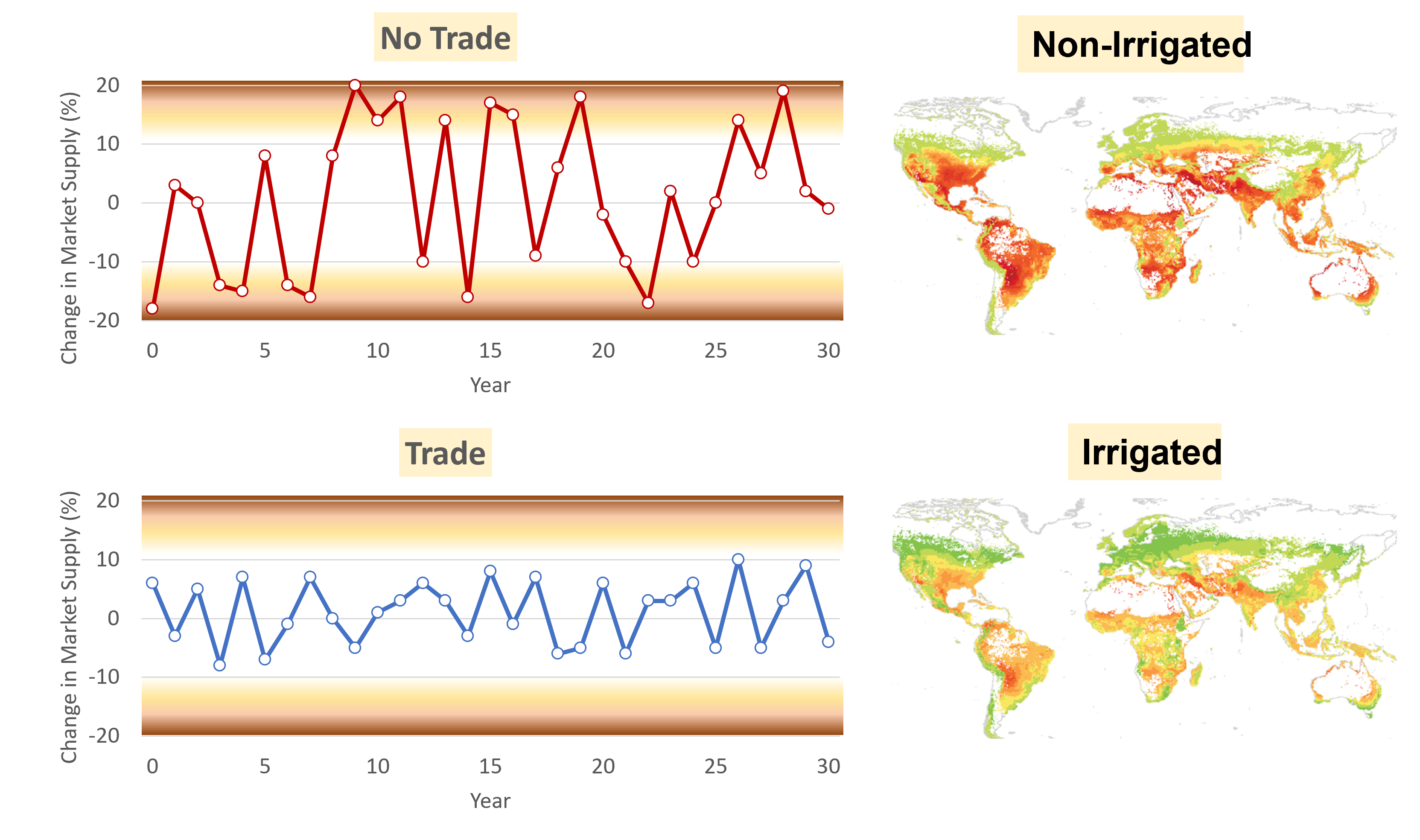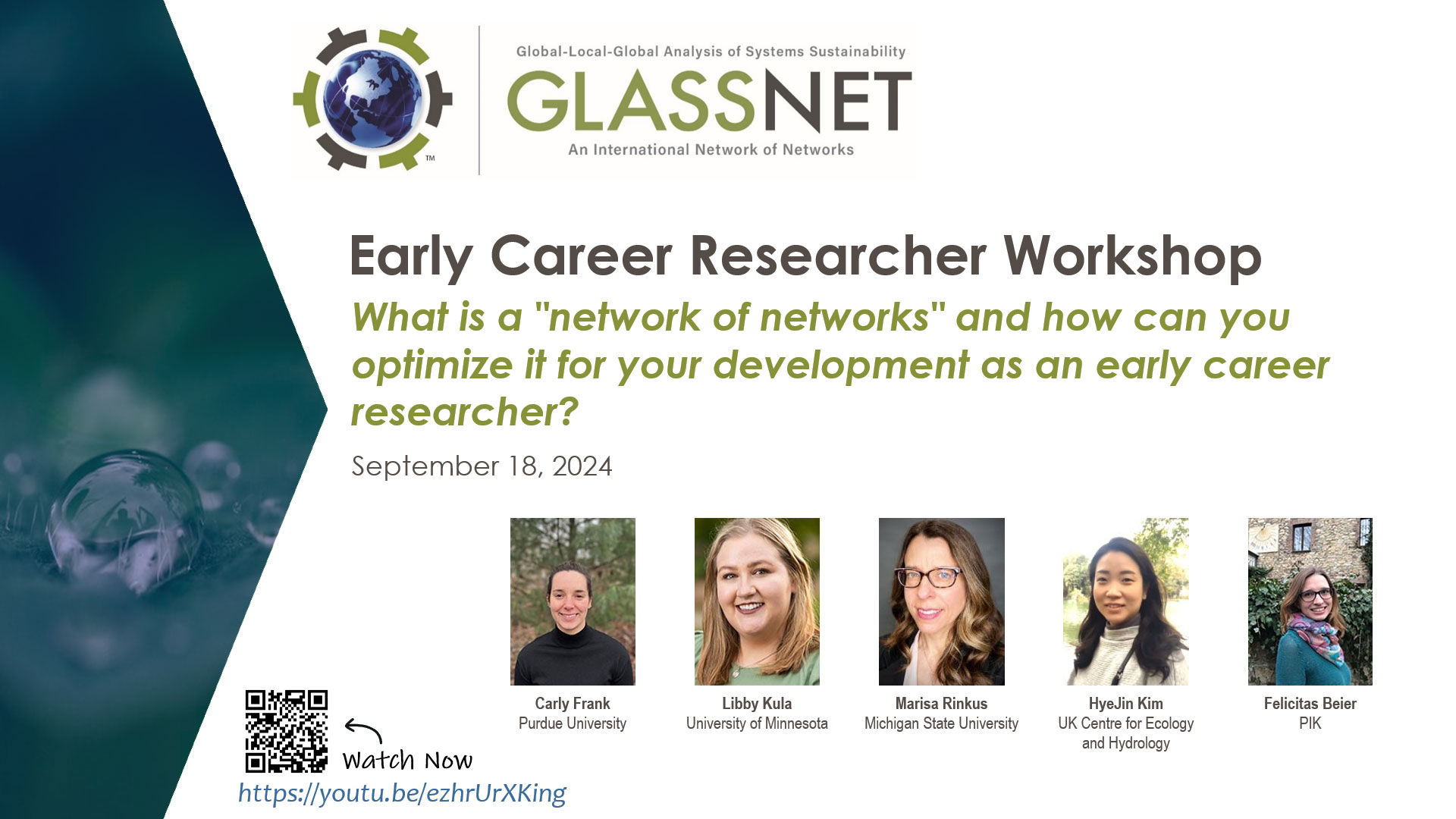GLASSNET’s impact on key stakeholders will make a difference in achieving the SDGs. Our network has the potential to provide decision makers from a wide-array of areas with the data needed to properly assess actions that will affect the environment, the economy and local communities.
Learn more about GLASSNETFeatured Researcher

Dr. Iman Haqiqi is a Research Economist at Center for Global Trade Analysis at Purdue University. He conducts policy-relevant research on the interaction of social and environmental systems addressing major sustainability and resilience challenges regarding international agricultural trade, land use, water resources, and climate change. He studies food security and environmental sustainability employing cutting-edge methods in coupling natural-human systems. The strength of his research is a global-to-local-to-global approach that considers economic feedbacks and local conditions. Recently, he coupled a global Water Balance Model with a global land-use model and a partial equilibrium trade model to establish an advanced framework in which he explores the consequences of a pandemic like COVID-19 co-occurring with heat and water stress.
For additional publications by Dr. Haqiqi, please visit: https://scholar.google.com/citations?user=YlXNrHgAAAAJ&hl=en
Featured Research

Trade can buffer climate-induced risks and volatilities in crop supply
Climate change is increasing the frequency and severity of extreme events, posing significant challenges to food security. Corn, a major staple crop, is particularly vulnerable to heat stress which drives yield variability. While many studies have looked at how climate change impacts average yields, this study investigates the future volatility and risks associated with global corn supply under climate change, evaluating the potential benefits of two key adaptation strategies: irrigation and market integration.
A statistical model is employed to estimate corn yield response to heat stress and then the NEX-GDDP-CMIP6 climate data is employed for future projections. Three metrics are used to measure risks: Sigma (σ) measures overall yield volatility, Rho (ρ) assesses the risk of significant yield loss, and Beta (β) compares a region’s yield volatility to the global market.
The study finds that yield volatility is increasing in most regions, especially in major corn-producing areas like Brazil and the United States. While irrigation can reduce volatility, it is not sustainable due to groundwater depletion. In contrast, integrating into global markets significantly reduces volatility and market risks with less sustainability concerns. While irrigation can benefit individual farmers, promoting global market integration offers a broader solution for fostering resilience and sustainability across the entire food system.
References:
Haqiqi .2024. Trade can buffer climate-induced risks and volatilities in crop supply. Environ. Res.: Food Syst. https://doi.org/10.1088/2976-601X/ad7d12
Featured Events

September 18, 2024
This workshop is part of a series of GLASSNET workshops aimed at equipping early career researchers (ECRs) with the skills and mindset necessary for navigating the dynamic and interconnected world of contemporary scientific research. During this workshop speakers will clarify what a "network of networks" is, and how it differs from, and expands on, singular networks. The workshop will also discuss the advantages of being involved in a "networks of networks" to early career researchers, PhD students, and marginalized groups.
Watch the full workshop and others on GLASSNET YouTube Channel.
